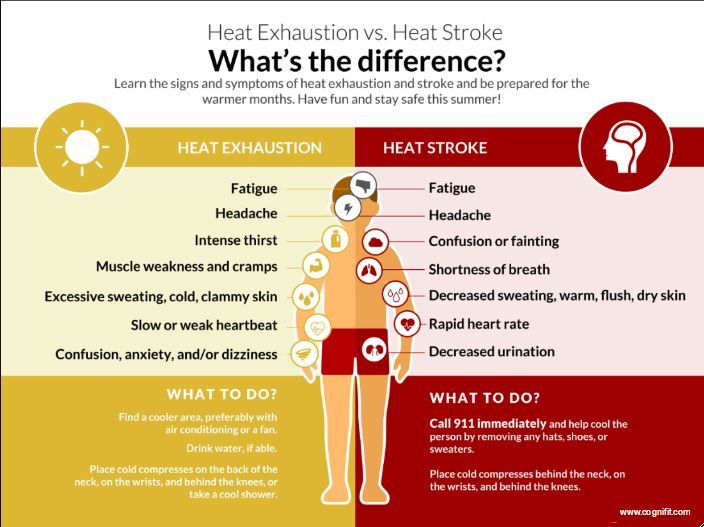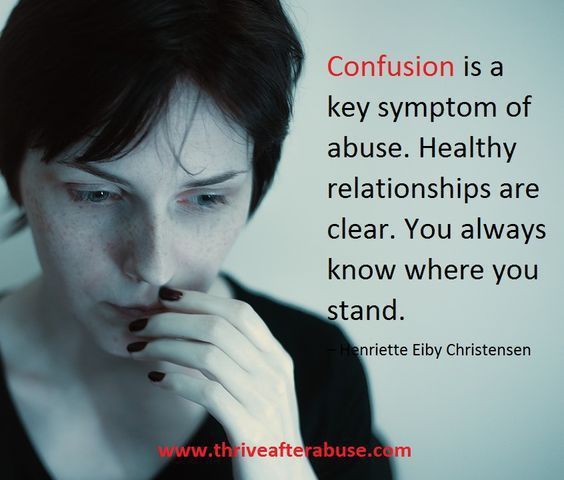Iron cured my anxiety
Low Iron Depression and Anxiety
Skip to content Low Iron, Depression, and Anxiety – A Simple SolutionUpdated: January 5, 2021
The large-scale traumatic event of the COVID-19 Pandemic has amplified anxiety and depression globally.
A recent study found that depression is three times higher during COVID-19 than before the pandemic. Physical, emotional, and psychological burnout from the disruption of our normal lives otherwise known as COVID fatigue is playing a role.
Social isolation combined with a lack of activities that bring joy is extremely difficult to process emotionally. Uncertainty, hopelessness, frustration, anger, worry, and fear are just some of the emotions that may be present during these turbulent times.
If you or a loved one is experiencing depression we are here to help and ready to explore additional underlying causes of your depression. Low levels of iron is one factor that we rule out.
In this article, we share insight into how iron deficiency is linked to emotional health.
I have noticed an increasing number of patients struggling with depression, anxiety, and other mood problems over my 30+ years of practice as a physician. Depression is on the rise in all age groups, with a recent survey of teenagers in the United States revealing that 36% of girls and 14% of boys experience depression at some point during their teenage years.[1] Girls are 2 times more likely to become depressed than boys, particularly after beginning menstruation at puberty.
The results of this survey raised a red flag for me. When I treat patients with mood disorders, I search for any underlying medical or nutritional causes. One nutritional deficiency that often contributes to depression is iron deficiency. When I saw that girls are more likely to become depressed than boys and that there is a spike after beginning menstruation (a time when iron is lost in the blood), I couldn’t help but wonder if iron might play a role for some of these teenage girls.
Another group of patients that I have seen become iron-deficient and depressed are my patients who come to me taking acid-blocking medications. Acid blockers, like Prilosec and Nexium, reduce stomach acid to treat symptoms of reflux and heartburn. The problem is that stomach acid is required for the proper absorption of iron from food. Ongoing use of these medications can lead to iron deficiency and a cascade of symptoms to follow.[2]
Let’s take a step back. What exactly does iron have to do with mood and depression?
Iron and DepressionIron is a vital mineral that plays a role in every cell of the body. Iron is a component of the hemoglobin protein in red blood cells, which carries oxygen throughout the body.
Strict vegetarians are at risk of iron deficiency. Iron is obtained from food sources, such as meat, poultry, seafood, lentils, beans, spinach, and sesame seeds.
When there is a lack of iron in the body, red blood cells become small, and less oxygen circulates to body tissues—a condition called iron-deficient anemia. Common symptoms of iron-deficient anemia include lack of energy, dizziness or lightheadedness, and pale skin.
Common symptoms of iron-deficient anemia include lack of energy, dizziness or lightheadedness, and pale skin.
Some people are iron deficient without actually having anemia. A unique symptom of iron deficiency is a craving for ice. There is a medical term for craving ice: pagophagia. If you crave ice, you may want to have your iron levels checked.
Iron deficiency can contribute to depression because of its relationship with dopamine—one of the neurotransmitters in the brain that keeps us happy. Iron is required for the production of dopamine in the brain.[3] Our bodies use tyrosine from protein-rich foods to produce dopamine, but this only happens in the presence of iron.[4] A lack of dopamine can lead to depression, anxiety, and even movement disorders like restless leg syndrome.[5] Think of it like this:
Symptoms of Dopamine Deficiency
- Fatigue
- Apathy
- Anxiety / Depression
- Poor Concentration
- Restless Leg Syndrome
Testing for Iron Deficiency
Routine blood tests measure the number, size, and shape of red blood cells as well as the amount of hemoglobin in the blood. These measurements give insight into iron status, but they do not reliably detect iron deficiency in all patients.[6] The most reliable way to test for body stores of iron is to test ferritin. Ferritin is the body’s storage form of iron and the most reliable test for iron deficiency.
A Case ExampleI had a young woman come to see me with heart palpitations. Her palpitations had begun after taking a medication to treat restless leg syndrome. We know that restless leg syndrome can be associated with low iron levels. Sure enough, her ferritin level was low. It turns out that her iron level was low because she was taking an acid-blocking medication to treat her heartburn.
Here we have a woman experiencing a side effect of a medication, which she is taking to treat the side effect of another medication. How could we turn this around? We needed to get to the root cause of the original symptom: heartburn.
How could we turn this around? We needed to get to the root cause of the original symptom: heartburn.
We discovered that her heartburn was a reaction she was having to gluten.
We did a trial of a gluten-free diet and started her on a protocol to heal her digestive system. The heartburn went away. We gave her a natural iron supplement, which corrected the iron deficiency. As her iron levels returned to normal, her dopamine levels rose, and her symptoms of anxiety and restless leg syndrome improved.
How to Get Care for DepressionDepression can affect friendships, performance, and even lead to suicide attempts. If the answer might be as simple as correcting iron deficiency, then why not explore that possibility? If you or somebody you know struggles with a mood disorder, our integrative team of doctors, nurses, and nutritionists is here to help. We will test your ferritin levels and screen for any other underlying medical causes.
Call our office today at 303-343-3121.
Tips for Coping with Depression- Communicate with loved ones and express your feelings.
- Cultivate a meditation or deep breathing practice to aid in relaxation.
- Practice gratitude by thinking of three things you are grateful for every day.
- Aim to exercise and move your body daily to increase your endorphins.
- Sit outside on sunny days to boost your levels of Vitamin D.
- Maintain a consistent sleep schedule.
- Consume healthy foods and limit caffeine and alcohol intake.
If you or someone you know feels suicidal there is a National Suicide Prevention Lifeline that is available 24 hours a day. For free and confidential support, you can call 800-273-8255.
References:[1] Breslau J, Gilman SE, Stein BD, Ruder T, Gmelin T, Miller E. Sex differences in recent first-onset depression in an epidemiological sample of adolescents. Transl Psychiatry. 2017;7(5).
Sex differences in recent first-onset depression in an epidemiological sample of adolescents. Transl Psychiatry. 2017;7(5).
[2] Hashimoto R, Matsuda T, Chonan A. Iron-deficiency anemia caused by a proton pump inhibitor. Intern Med. 2014;53(20):2297-2299.
[3] Youdim MB, Ben-Shachar D, Ashkenazi R, Yehuda S. Brain iron and dopamine receptor function. Adv Biochem Psychopharmacol. 1983;37309-321.
[4] Unger EL, Bianco LE, Jones BC, Allen RP, Earley CJ. Low brain iron effects and reversibility on striatal dopamine dynamics. Exp Neurol. 2014;261462-468.
[5] Allen RP. Restless Leg Syndrome/Willis-Ekbom Disease Pathophysiology. Sleep Med Clin. 2015;10(3):207-14, xi.
[6] Johnson S, Lang A, Sturm M, O’Brien SH. Iron Deficiency without Anemia: A Common Yet Under-Recognized Diagnosis in Young Women with Heavy Menstrual Bleeding. J Pediatr Adolesc Gynecol. 2016;29(6):628-631.
Like what you learned? Click here to sign up for our eNewsletters by Dr. G to receive cutting-edge health tips straight to your inbox.
G to receive cutting-edge health tips straight to your inbox.
About The Care Group: We promote optimal wellness by providing an individualized, functional medicine approach to address root causes rather than simply treating symptoms. We help patients with a wide range of issues including autoimmune/ inflammatory disease, digestive disorders, hormone imbalances, and mood disorders. To learn more about our practice, click here.
About the Author: Dr. Gerard Guillory, MD is Board Certified in Internal Medicine and has published two books on Irritable Bowel Syndrome (IBS). In 1985, he opened The Care Group, PC. Today, his clinic is a Primary Care facility that is a hybrid of functional and traditional medicine treating patients with digestive disorders, autoimmune disease, and other conditions. You can learn more about Dr. Guillory here.
Go to Top
The Relationship Between an Iron Deficiency and Anxiety
The Relationship Between an Iron Deficiency and Anxiety | XanFreeOct 22, 2020 Posted by: XanFree Nutrition Possible Anxiety Causes, Possible Anxiety Treatment
Iron deficiency is among the common nutritional concerns globally. A considerable number of people suffering from iron deficiency are children and pregnant women. Iron is an essential mineral that plays an integral role in body cells. People suffer iron deficiency when the body lacks enough iron mineral that causes unusually low red blood cells. It’s an essential component of hemoglobin in red blood cells that transport oxygen in the body. Therefore, when your body lacks enough hemoglobin, muscles and tissues lack enough oxygen and cannot function effectively.
A considerable number of people suffering from iron deficiency are children and pregnant women. Iron is an essential mineral that plays an integral role in body cells. People suffer iron deficiency when the body lacks enough iron mineral that causes unusually low red blood cells. It’s an essential component of hemoglobin in red blood cells that transport oxygen in the body. Therefore, when your body lacks enough hemoglobin, muscles and tissues lack enough oxygen and cannot function effectively.
Lack of enough iron in your body can be due to excessive blood loss or reduced red blood cell production. The other cause of the body's inability to carry oxygen is an upsurge in the breakdown in the number of red blood cells. Notably, you may suffer iron deficiency without having anemia.
Understanding Iron Deficiency and AnxietyWhile iron is necessary for maintaining the required levels of red blood cells, it is also vital for the brain and nerves' functioning.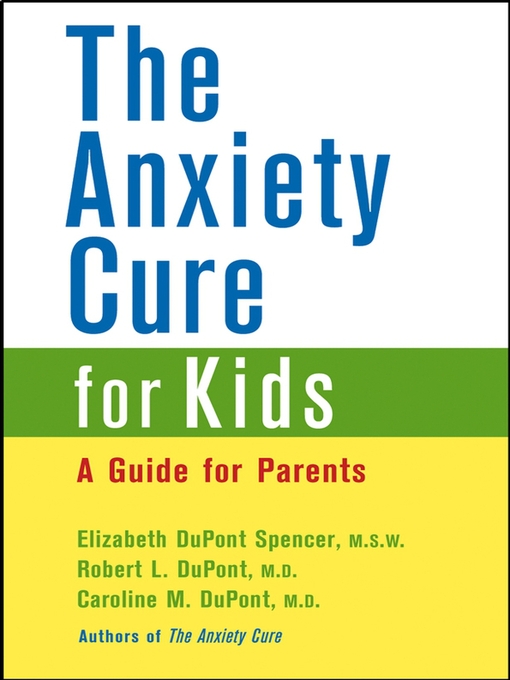 Severe lack of iron deficiency in young children may damages cognition and results in delays in development and lowers IQ.
Severe lack of iron deficiency in young children may damages cognition and results in delays in development and lowers IQ.
Iron deficiency may cause anxiety because of its relationship with dopamine, which is among the brain neurotransmitters that keep people happy. Iron is necessary for the production of dopamine in your brain. Iron deficiency can also present as poor concentration and irritability. Generally, people with low iron levels in their bodies have higher rates of psychiatric disorders than those with sufficient iron levels.
Anxiety and panic disorders are some of the reactions that your body produces against stress. When you are under pressure, your body goes through some chemical changes that can cause anemia. When under stress, your body uses more magnesium than before, causing its depletion, which causes mild anemia. Also, anxiety significantly affects your eating habits. Consequently, it affects protein and vitamin intake, causing a deficiency.
Your body requires tyrosine from foods rich in protein to manufacture dopamine, which can only happen when the iron is sufficient.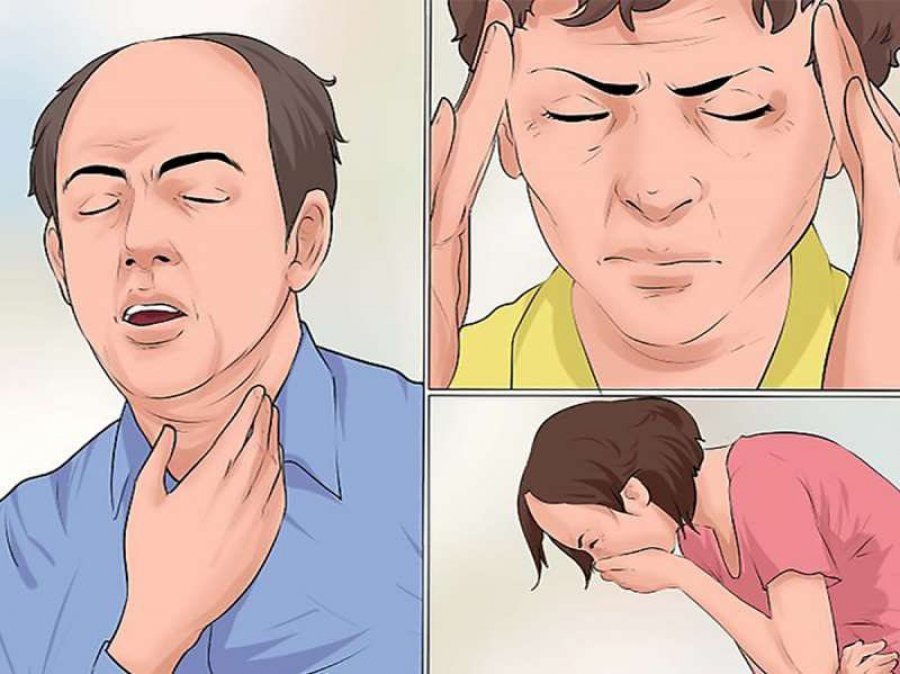 Lack of dopamine causes depression and anxiety, and other severe disorders such as restless leg syndrome. The brain gets iron supply through transferrin receptors. While iron uptake into the brain is controlled, it varies with iron in the body. Therefore, people with low iron levels in the body have less iron getting into the brain.
Lack of dopamine causes depression and anxiety, and other severe disorders such as restless leg syndrome. The brain gets iron supply through transferrin receptors. While iron uptake into the brain is controlled, it varies with iron in the body. Therefore, people with low iron levels in the body have less iron getting into the brain.
Some iron deficiency causes include increased iron requirements during pregnancy, blood loss, and inflammatory bowel disease. Iron deficiency symptoms vary based on your age, how quickly it develops, and health status. Here are some of the signs to know.
- Unexplained Tiredness
Feeling extremely tired is a telltale sign of iron deficiency. You often feel tired because your body requires iron to manufacture hemoglobin, and iron deficiency causes insufficient hemoglobin. Consequently, less oxygen reaches your muscles and tissues when hemoglobin is low, depriving your energy. Also, your heart has to work harder than usual for blood circulation, which makes you tired.
- Headaches and Dizziness
Iron deficiency and low hemoglobin levels in red blood cells imply that your brain lacks enough oxygen. Consequently, blood vessels in your brain swell resulting in headaches and pressure. While there are many causes of headaches, frequent dizziness and headaches could be a symptom of iron deficiency.
- Strange Cravings
You could be suffering iron deficiency if you frequently get cravings to eat ice, paper, clay, chalk, or dirt. However, such strange cravings can occur during pregnancy. That’s why you should visit a doctor for tests. Feeling anxious is also a telltale sign of iron deficiency.
Signs of AnxietyPeople experience anxiety as a normal response to stressful events, such as illness or financial troubles. However, you need to consult with a doctor when the anxiety symptoms become more extensive and start inferring with your life. Fortunately, you can manage these signs by consulting a medical professional.
- Feeling Agitated
When you experience anxiety, part of your sympathetic nervous system goes into overdrive. Consequently, you experience dry mouth, sweaty palms, shaky hands, and a racing pulse. You experience these signs because your brain believes that you are in danger and prepares the body to react.
- Difficulty Concentrating
A significant number of anxious people find it challenging to concentrate. Anxiety may interrupt working memory, which is vital in holding short-term information. That explains the considerable decrease in performance for individuals going through high levels of stress.
Natural Ways to Reduce AnxietyYou can recover from anxiety and feel better about yourself by eating a healthy diet. You can lower the risks of developing anxiety by consuming diets rich in whole grains, vegetables, nuts, and fruits. The other natural way to reduce stress is by eating fermented foods and probiotics because they enhance mental health.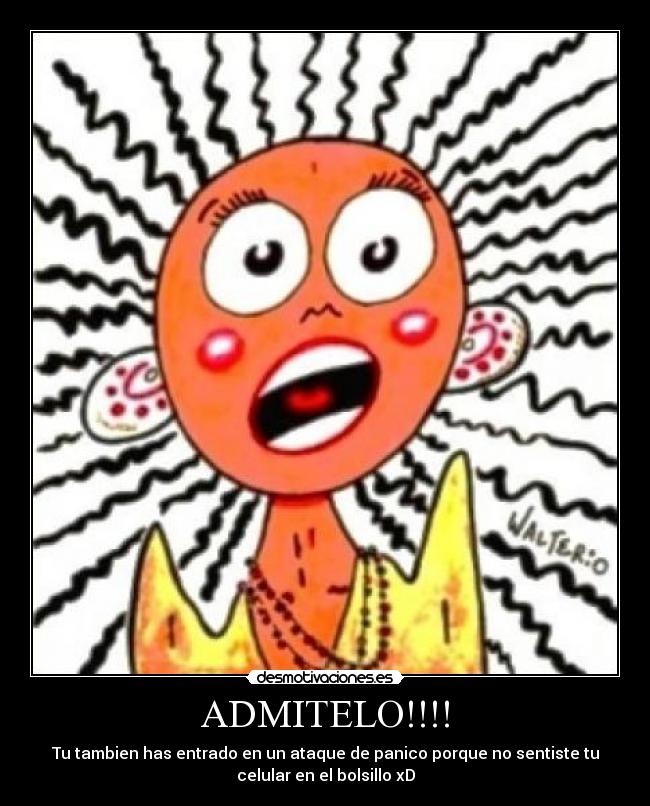 You can also reduce anxiety by limiting caffeine, quitting smoking, regular exercise, and abstaining from alcohol.
You can also reduce anxiety by limiting caffeine, quitting smoking, regular exercise, and abstaining from alcohol.
Your doctor will run several tests to diagnose iron deficiency. They are based on the age, physical health, and medical history of a patient. The tests analyze the hemoglobin level because a lower than the usual levels is an iron deficiency symptom. The tests also check the red blood cell color and size.
With insufficient iron levels, red blood cells are paler and smaller than expected. Your doctor will also check for ferritin, which is the protein that aids in iron storage in your body. Low ferritin levels indicate low levels of stored iron. Doctors also ask for more tests when the bloodwork shows an iron deficiency, such as endoscopy, ultrasound, and colonoscopy.
How to Get CareAnxiety can lead to depression, and depression leads to suicide attempts and affects performance and relationships. The solution for anxiety could be as simple as treating your iron deficiency. You may also need to control your anxious reactions so that you can stop anxiety.
The solution for anxiety could be as simple as treating your iron deficiency. You may also need to control your anxious reactions so that you can stop anxiety.
If the anxiety results from insufficient iron in your body, you can try taking supplements as advised by a medical professional. You need to boost iron absorption in your body by eating foods rich in vitamin C and avoiding foods that inhibit iron absorption like dairy products. Additionally, treating underlying causes of insufficient iron is an effective way of treating anxiety resulting from iron deficiency.
ConclusionIron deficiency can cause anxiety. Some people experience evident signs, while others don’t, depending on the severity of the deficit. Be certain to visit a medical professional if you experience symptoms like anxiety, shortness of breath, and restless legs rather than self-diagnosis. Fortunately, iron deficiency and anxiety are easily treatable.
References- https://www.
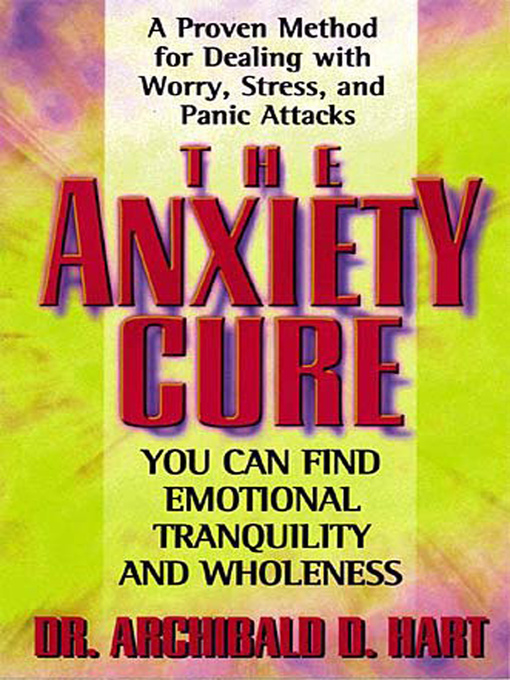 healthline.com/nutrition/iron-deficiency-signs-symptoms#TOC_TITLE_HDR_13
healthline.com/nutrition/iron-deficiency-signs-symptoms#TOC_TITLE_HDR_13 - https://www.mayoclinic.org/diseases-conditions/iron-deficiency-anemia/diagnosis-treatment/drc-20355040
- https://www.psychologytoday.com/us/blog/evolutionary-psychiatry/201511/heavy-metal-iron-and-the-brain
- https://www.thecaregrouppc.com/low-iron-depression-and-anxiety/
Does Ginger Help with Anxiety? Dec 22, 2020
symptoms, how to get rid of and treat
Olya Selivanova
struggles with obsessive-compulsive disorder
Author profile
Since childhood, I have suffered from obsessive thoughts.
When I was nine years old, I was reading a book, when suddenly the thought occurred to me: “If you don’t finish reading today, your mother will die.” The thought frightened me, I put down the book and cried, but I had to return to reading so that my mother would not die.
From that moment on, the frightening thoughts were different. I could suddenly change the route, because the thought came to my mind: “It is not safe to go further. Get around." There were thoughts to harm loved ones: push, hit, pour over. At such moments, I thought that an evil force had entered into me, and I began to count to myself, imagined how the numbers increased in order in size and knocked bad thoughts out of my head.
By the time I was twelve, it all came to naught, and as a teenager, I decided that it was just childish oddities. But seven years later, the obsessive thoughts returned, and the doctor at the neuropsychiatric dispensary diagnosed me with Obsessive-Compulsive Disorder. I'll tell you how I was treated and how I live now.
Go see a doctor
Our articles are written with love for evidence-based medicine. We refer to authoritative sources and go to doctors with a good reputation for comments. But remember: the responsibility for your health lies with you and your doctor. We don't write prescriptions, we make recommendations. Relying on our point of view or not is up to you.
We don't write prescriptions, we make recommendations. Relying on our point of view or not is up to you.
What is obsessive-compulsive disorder
Obsessive-compulsive disorder is a mental illness in which a person has obsessive thoughts and compulsive actions.
What is Obsessive-Compulsive Disorder - Mayo Clinic
Obsessive thoughts - obsessions - usually revolve around certain topics: fear of harming yourself and others, fear of germs and toxic substances, the need to organize everything. They appear suddenly or are provoked by external circumstances, such as a sharp object or the word "last".
Intrusive thoughts cannot be ignored, they cause anxiety or disgust. In response to them, a person has compulsions - a strong desire to perform certain actions that, according to his feelings, will get rid of such thoughts. Compulsions are difficult to resist: the anxiety will grow until the person gives up.
For example, the obsessive thought that a person will become infected after touching a doorknob will provoke compulsive actions - repeated washing of hands, sometimes for several hours in a row.
/shizofreniya/
How much does it cost to support a relative with a mental disorder
I try not to touch doorknobs in public places and always make sure the door is closed. Do I have OCD?
Sergey Divisenko
psychotherapist
If a person's condition does not interfere with himself or others, then everything is in order, if it interferes, a disorder can be suspected. In the case of checking the door, one can say that checking if the door is closed once is not a problem, rechecking the door several times in a row and doing it systematically is already a problem.
To understand whether or not there is OCD, the doctor pays attention to how often the patient has obsessive thoughts and compulsive actions and how they affect his life. If symptoms occur more frequently in two weeks than in seven days and interfere with daily activities, it is probably OCD.
In this case, the symptoms should have the following characteristics:
- The person should evaluate them as his own thoughts and desires.

- There must be at least one thought or action that the person unsuccessfully resists.
- The thought of a person performing a compulsive action should not in itself be pleasurable. The fact that an action will help reduce anxiety is not considered pleasant in this sense.
- Thoughts or actions must be repeated.
How obsessive-compulsive disorder is treated
OCD is considered a lifelong disorder, but with treatment it is possible to achieve remission: to get rid of obsessive thoughts and compulsive actions for a long time or to reduce their number.
Medical treatment. The main drugs for the treatment of OCD are antidepressants of the SSRI group. They increase serotonin levels in the brain, making OCD symptoms less likely to occur.
Treatment options for OCD - NHS
Depending on the course of the disease and symptoms, along with antidepressants, the doctor may prescribe other drugs: tranquilizers, neuroleptics or mood stabilizers.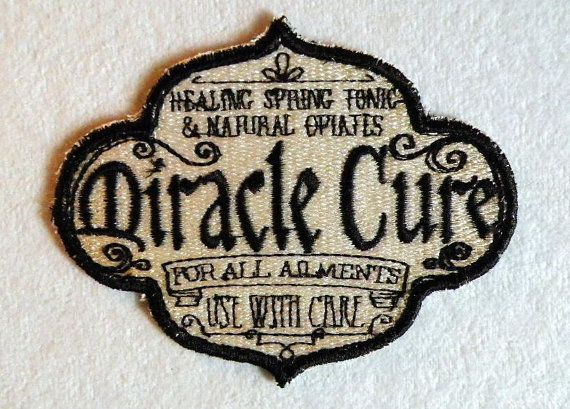
Cognitive behavioral therapy. This is a type of psychotherapy during which a person learns to control their emotional response to intrusive thoughts. As a result of therapy, obsessive thoughts cease to cause anxiety and compulsive actions.
Cognitive behavioral therapy - NHS
Order of the Ministry of Health of the Russian Federation of September 16, 2003 No. 438 "On psychotherapeutic care"
Psychiatrists, psychotherapists and psychologists are involved in the treatment of OCD in Russia. Psychiatrists prescribe prescription drugs. Psychotherapists and psychologists conduct psychotherapy sessions.
How I was diagnosed
At the age of 19, the development of the disease took a new turn. I was washing the kitchen knife and I had an obsessive thought that I was losing control and could cut myself and the guy who was nearby at that moment. So I began to avoid sharp objects, there was an irresistible desire to hide or throw them away.
Obsessive thoughts revolved around the topic of death: drinking nail polish remover, bleach, vinegar, throwing yourself under a vehicle or jumping out of a window. Because of this, I removed all dangerous liquids from the house and stayed away from open windows, highways and train station platforms. I didn’t sleep well at night, suffered from anxiety, considered myself crazy and dangerous, and began to move away from everyone.
I also doubted everything. Even if I just performed an action, it seemed to me that it was not completed. I opened the door to make sure that it had been closed before, closed it again, pulled the handle, asked those around me if the door was exactly closed. I could wake up at night and see if the stove was turned on, although before going to bed I went up to it and stared without blinking - so that it would crash into my memory that it was definitely turned off. My young man, seeing all this, insisted that we try to see a psychologist.
In Irkutsk, where I live, psychiatric care can be obtained free of charge at the regional psycho-neurological dispensary. I turned to the psychotherapeutic department of the dispensary for a consultation with a psychologist. At the reception, they brought me a card and said that there was no appointment with a psychologist for the next few days, but I could get to a psychiatrist: there are fewer people who want to see him.
I turned to the psychotherapeutic department of the dispensary for a consultation with a psychologist. At the reception, they brought me a card and said that there was no appointment with a psychologist for the next few days, but I could get to a psychiatrist: there are fewer people who want to see him.
/spravka/
How to get a certificate from the PND
At the appointment with the psychiatrist, I told about what was happening to me. The doctor was not surprised and said that it was an obsessive-compulsive disorder. It was the first time I heard my diagnosis, but I didn't believe it. On the Internet, I came across information that OCD is only pedantry, handwashing, fear of germs and perfectionism, and not the creepy things that come to my mind. The psychiatrist said that OCD was treated with antidepressants and offered to write a prescription, but I refused treatment because I thought they were serious drugs that would do more harm than help.
How a visit to a neuropsychiatric dispensary with OCD will affect later life
Sergey Divisenko
psychotherapist
The patient could move freely, drive a car, use weapons and work.
With an OCD diagnosis, you can still work in any job, there are no legal barriers to this. With regard to cars and weapons, the situation has changed. In 2014 and 2015, government decrees appeared, according to which OCD became a contraindication for driving and owning weapons.
However, from a psychiatrist's point of view, a person diagnosed with OCD can drive a car and use a weapon. Doctors of the psycho-neurological dispensary still give a certificate about this, but they do it through a medical commission.
Treatment
First hospitalizationMy condition worsened, I tried to ignore obsessive thoughts. But the more I resisted them, the stronger they became. In addition, anger, irritability and constant fatigue appeared.
With new symptoms, I decided to see an endocrinologist, because I heard that this happens with problems with the thyroid gland. According to the results of ultrasound and hormone tests, the thyroid gland was in order. Then I made an appointment with a neurologist, but he also said that this was not his profile. Both doctors suggested that my constant fatigue, anger and irritability were symptoms of depression and advised me to seek psychiatric help.
According to the results of ultrasound and hormone tests, the thyroid gland was in order. Then I made an appointment with a neurologist, but he also said that this was not his profile. Both doctors suggested that my constant fatigue, anger and irritability were symptoms of depression and advised me to seek psychiatric help.
Symptoms of clinical depression - NHS
I researched information about depression and realized that antidepressants could help, all I had to do was get a prescription. I came to the psychotherapeutic department again, but there was already another psychiatrist there. Since my condition worsened, instead of a prescription, he wrote out a referral for hospitalization in a day hospital. I had prejudices about a psychiatric hospital, so I did not want to visit the hospital. But there was no strength to argue with the psychiatrist.
This is how a referral for hospitalization to a day hospital looks like The next day I was already in the hospital. During the registration, the psychiatrist on duty asked what I was complaining about, measured the pressure and examined whether there were injuries on the body. It turned out to be difficult for me to talk about the symptoms: there was a feeling that they would not believe me, or vice versa, they would believe me so much that they would put me in a round-the-clock hospital. But everything was fine, the psychiatrist wrote down the data on the card, gave it to the orderly, and together with him sent me to the head.
It turned out to be difficult for me to talk about the symptoms: there was a feeling that they would not believe me, or vice versa, they would believe me so much that they would put me in a round-the-clock hospital. But everything was fine, the psychiatrist wrote down the data on the card, gave it to the orderly, and together with him sent me to the head.
The manager looked at the card, confirmed the diagnosis of OCD and depression, and prescribed treatment: an antidepressant, an antipsychotic, a mood stabilizer, tranquilizer tablets, and injections of B vitamins.
/guide/vitamins/
Vitamins: what foods contain and how to take supplements
The routine in the hospital was as follows: I arrived at eight in the morning, had breakfast and took the prescribed pills, took injections, dined and went home. Tablets were issued immediately for one day, but they could also be issued for two days, for example, before the weekend. Once after the injection, I went to an appointment with a clinical psychologist, he gave various tests and questionnaires that tested logic and intelligence.
About three times a week I went to see a psychiatrist in the same hospital. I told her about my condition and asked questions. I thought that as soon as I start taking medication, my mood will rise and my anxiety will go away. But this did not happen, so it seemed that everything was in vain and the treatment had to be abandoned. The psychiatrist explained to me that not all drugs begin to act instantly, she assured me that we were on the right track and we had to wait. These conversations made it easier. In my case, antidepressants began to work only on the third month of admission, when I no longer visited the day hospital.
Treatment at the day hospital lasted a month. All medications, medical consultations and meals were free. I spent money only on the road to the hospital and back - 600 R by public transport for the whole time.
/bye-depression/
“It reminded me of a strict regime sanatorium”: how much I spent on treating depression
After treatment, the symptoms of depression remained, but obsessive thoughts began to bother me less often: I stopped being afraid of open windows and was able to ride the escalator. Treatment had to be continued on an outpatient basis. Before I was discharged, the psychiatrist said that she would transfer my data to the psychiatric department. Now I will need to come to the local psychiatrist for prescriptions for medicines, and turn to him if the condition worsens or questions arise.
During the treatment in the hospital, I doubted everything. Even in being sick. Not only the psychiatrist, but also relatives helped to cope. They noticed the changes, but my young man did not let me stop the treatment
They noticed the changes, but my young man did not let me stop the treatment Treatment
Visiting a local psychiatristAfter I was discharged from the hospital, I came to the registration office of the psychiatric department with a passport and I was immediately sent to the district police officer. The doctor did not change the treatment and wrote out a prescription for the same medicines that were given in the day hospital. In the future, a referral to the district police officer was also not required. I just came to the appointment when I needed to update the prescription.
Government Decree of July 30, 1994 No. 890 with a list of categories of beneficiaries who are entitled to free medicines
District psychiatrists were different: some were polite, some were rude and rude. Using the brute force method, I found two normal specialists - when I made an appointment at the reception, I began to ask to be directed to them. Usually the registrar complied with my request.
Spent in six months of outpatient treatment — 8895 Р
| Preparation | Spending |
|---|---|
| Antidepressants | 5988 R |
| Normotimics | 2384 P |
| Antipsychotics | 419 P |
| Tranquilizers | 104 Р |
Antidepressants
5988 R
Normotimics
2384 R
neuroleptics
419 R
Transquilizers
104 R
Free medicines for the treatment of OCD are provided to certain privileged categories of people. I’m not a beneficiary, so I bought everything with my own money. Pharmacies don’t require a passport, but they put the date of issue of the medicine on the back and don’t sell more than prescribed by prescription. For example, according to a prescription for three months, I was given only three packs of an antidepressant. When I wanted to buy one more to have a supply, the pharmacist refusedTreatment
Second hospitalization and psychotherapy After six months of outpatient treatment, the district psychiatrist recommended to be treated again in the hospital.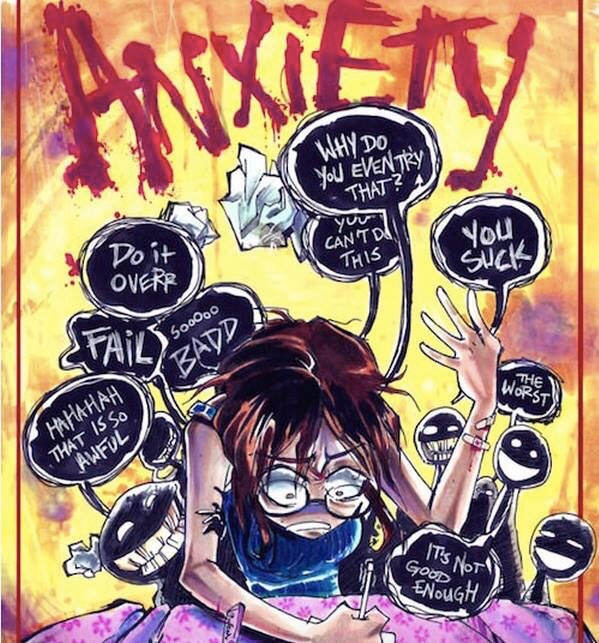 Antidepressants helped: my mood improved, I got energy and I wanted to live, but I felt a side effect from antipsychotics. I was terribly sleepy, my handwriting changed, it was difficult to write in class and generally follow the train of thought of the teacher. In addition, there were more intrusive thoughts.
Antidepressants helped: my mood improved, I got energy and I wanted to live, but I felt a side effect from antipsychotics. I was terribly sleepy, my handwriting changed, it was difficult to write in class and generally follow the train of thought of the teacher. In addition, there were more intrusive thoughts.
In the day hospital, I was treated by the same psychiatrist as the first time. She adjusted the drug treatment so that I was not bothered by intrusive thoughts. She also said that a psychotherapist had appeared in the hospital and referred me to her for a consultation.
Unlike the psychiatrist's consultations during the first hospitalization, we did not discuss drugs and their effects with the psychotherapist. We talked about what is happening to me and what other methods can be used to combat this, in addition to drugs. At the first appointment, I briefly talked about my lifestyle, obsessive thoughts, compulsive actions, and how I tried to resist them even before the treatment. Then the doctor explained to me what obsessive-compulsive disorder is and how it manifests itself, why my struggle only worsened the condition and led to depression.
Then the doctor explained to me what obsessive-compulsive disorder is and how it manifests itself, why my struggle only worsened the condition and led to depression.
/psychotherapy-search/
How to choose a psychotherapist
We agreed that I would try to keep the number of compulsive acts to a minimum, and I would cope with anxiety from intrusive thoughts with the help of techniques.
Speak key phrases. Thoughts in themselves mean nothing, they can come to mind automatically. We agreed that when I had an obsessive thought, I would simply tell myself that it was a manifestation of OCD. Here are the two phrases that I used: “This is just my thought that…”, “I know that this thought is a manifestation of OCD…” So gradually I stopped identifying myself with my thoughts and realized that thinking about the bad is does not mean to be a bad person.
Separately, we discussed the issue of the materialization of thoughts. When terrible things are spinning in your head, and you hear from everywhere that thoughts are material, you get very worried. We discussed the fact that thoughts are intangible and you can’t invite trouble with them. This made it easier and the degree of emotions decreased.
When terrible things are spinning in your head, and you hear from everywhere that thoughts are material, you get very worried. We discussed the fact that thoughts are intangible and you can’t invite trouble with them. This made it easier and the degree of emotions decreased.
Observe how the body reacts to anxiety. Every time I had anxiety from obsessive thoughts, I did not run away from it, but watched my body. I was shaking, my heartbeat increased, my breathing quickened, but I continued to live it. The psychotherapist said that I would not die from this. Yes, it is unpleasant and scary, but when you live emotions, you gradually learn to cope with them.
Keep a diary. In the course of the sessions, I became convinced that I cannot control the thoughts themselves - it is impossible, but I can control the reaction to them. So I started keeping a diary.
/psychotherapy/
How psychotherapy works
It was necessary to take notes according to the formula: A - situation, B - my thoughts, C - my emotions. Using such records, it is easier to track the thoughts that cause negative emotions and work them out. For example, when I could not fall asleep for a long time, I began to think that something was going wrong, and this caused anxiety. Then I wrote down the whole situation in a diary and instead of negative thoughts I formulated new ones: "My sleep does not depend on my will, and this is normal." It helped to get rid of anxiety, stop trying to sleep and go about your business. About half an hour later I went to bed and fell asleep peacefully.
Using such records, it is easier to track the thoughts that cause negative emotions and work them out. For example, when I could not fall asleep for a long time, I began to think that something was going wrong, and this caused anxiety. Then I wrote down the whole situation in a diary and instead of negative thoughts I formulated new ones: "My sleep does not depend on my will, and this is normal." It helped to get rid of anxiety, stop trying to sleep and go about your business. About half an hour later I went to bed and fell asleep peacefully.
| I also kept a mood diary. Before treatment, there was no point in monitoring the mood: it always turned out to be bad or indifferent | On antidepressants, I began to make entries in a diary every day and could track what affects my mood |
I also kept a mood diary.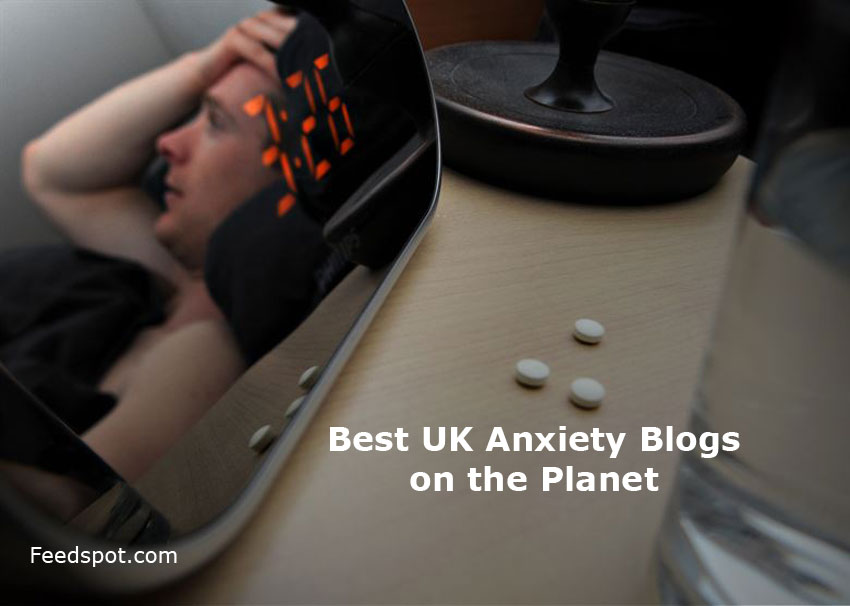 Before treatment, there was no point in monitoring the mood: it always turned out to be bad or indifferent. On antidepressants, I began to make entries in a diary every day and could track what affects my mood
Before treatment, there was no point in monitoring the mood: it always turned out to be bad or indifferent. On antidepressants, I began to make entries in a diary every day and could track what affects my mood
In the day hospital, I was treated for a month and a half, during which time I had only five sessions with a psychotherapist. All sessions, meals and drugs, as in the first hospitalization, were free. The only thing I had to spend money on was the road to the hospital and back, as well as the original antidepressant instead of the analogue provided in the dispensary. The doctor recommended the original, it suited me better.
3202 Р
spent on medicines and transport for a month and a half of treatment in the hospital
When I was discharged, the doctor told me that I was in a stable condition, the treatment helped me. I myself felt it: the mood was consistently good, and I quickly coped with obsessive thoughts. I was canceled all the drugs, except for antidepressants, then I had to continue taking them, be observed by the district psychiatrist and monitor my condition.
I was canceled all the drugs, except for antidepressants, then I had to continue taking them, be observed by the district psychiatrist and monitor my condition.
Spent one and a half months of treatment in a hospital — 3202 Р
| Expenditures | Spending |
|---|---|
| Antidepressants | 2422 R |
| Transport | 780 Р |
Antidepressants
2422 R
Transport
780 R
How do I feel after treatment
I stopped taking antidepressants a year and a month after discharge I spent another 14,640 R on them. Sometimes I have obsessive thoughts and compulsive actions, but I do not scold myself for this. I know that if I get upset, the symptoms will become more frequent. The psychiatrist warned me that OCD symptoms may appear periodically, but this is normal.
14,640 Р
spent on antidepressants for a year and one month
Coronavirus last spring was a test of strength for me. The condition worsened, compulsive actions resumed, I stopped leaving the house, I began to choke on the street, obsessive thoughts about death appeared. But I managed it on my own with the help of techniques taught to me by the therapist. I kept in my head the idea that if it worked then, it will work now.
The condition worsened, compulsive actions resumed, I stopped leaving the house, I began to choke on the street, obsessive thoughts about death appeared. But I managed it on my own with the help of techniques taught to me by the therapist. I kept in my head the idea that if it worked then, it will work now.
Before treatment, it was difficult for me to talk about my disorder. And now I openly talk about it and I can even joke about random manifestations of OCD. Almost everyone in my circle knows that I was being treated for OCD and depression. They help me notice compulsive actions and stop in time, treat me with understanding when I ask obvious things just in case - for example, did I close the door.
How often do people with OCD need to take drugs for life
Sergey Divisenko
psychotherapist
With the help of treatment, you can achieve remission - for a long time to get rid of the symptoms of OCD or reduce their number. Remission can occur both against the background of taking medications, and without them, against the background of psychotherapy.
Approximately 80% of patients with OCD stop taking medication sooner or later.
How much does OCD treatment cost?
In total, I treated OCD for one year and nine months. Of these, she was treated in a day hospital for two and a half months, and for a year and seven months - on an outpatient basis.
In the hospital, I only spent money on transport to and from the dispensary. Even during the second hospitalization, on the recommendation of the doctor, she bought antidepressants at the pharmacy and took them instead of those given in the hospital. The rest of the drugs, consultations and meals were free.
6 useful services for finding a psychotherapist
Most of the expenses are medicines during outpatient treatment.
Spent on OCD treatment for 1 year and 9 months — 27,337 R
| Expenditures | Spending |
|---|---|
| Antidepressants | 23 050 Р |
| Normotimics | 2384 P |
| Antipsychotics | 419 P |
| Tranquilizers | 104 Р |
| Transport during hospitalization | 1380 Р |
Save
- Obsessive Compulsive Disorder or OCD is a mental illness in which a person experiences obsessive thoughts and compulsive actions.

- OCD is considered a lifelong disorder, but remission can be achieved with the help of psychotherapy and drugs.
- OCD is treated in Russia by psychiatrists, psychotherapists and psychologists. Psychiatrists prescribe prescription drugs. Psychotherapists and psychologists conduct psychotherapy sessions.
- A visit to a neuropsychiatric dispensary will not prevent people with OCD from moving freely, driving a car, using weapons, or getting a job.
- Patients with OCD can receive care free of charge in state neuropsychiatric dispensaries or at their own expense in private clinics.
Did you also have an illness that affected your lifestyle or attitude? Share your story.
Tell
What if?.. Anxiety — how it controls us, and we control it us, and we her” (translated by Elena Teplyashina).
People have not always felt this anxiety. We didn't always spend that much time mulling over disaster scenarios. What is this voice that sounds in your head, what does it warn against? Is loneliness, the running of time, lack of money, mental illness, failures in personal relationships so terrible? Roland Paulsen, drawing on a large amount of material from history, philosophy, psychology and life itself, tells when humanity became so anxious and why. He offers to understand what is behind the fears of modern man and how to deal with them. His book will be interesting and useful to everyone who is anxious himself and who is anxious relatives.
What is this voice that sounds in your head, what does it warn against? Is loneliness, the running of time, lack of money, mental illness, failures in personal relationships so terrible? Roland Paulsen, drawing on a large amount of material from history, philosophy, psychology and life itself, tells when humanity became so anxious and why. He offers to understand what is behind the fears of modern man and how to deal with them. His book will be interesting and useful to everyone who is anxious himself and who is anxious relatives.
We offer you to read a fragment of the book.
How to Live with Anxiety
While the avant-garde organ concert is going on in the cathedral, I'm doing one of those interviews for this book that I didn't really plan. It's usually better to talk in a separate room so that people feel comfortable sharing their concerns and thoughts, but Sanne said she'd like to meet at church. She is almost seventy, she looks at me friendly through her glasses.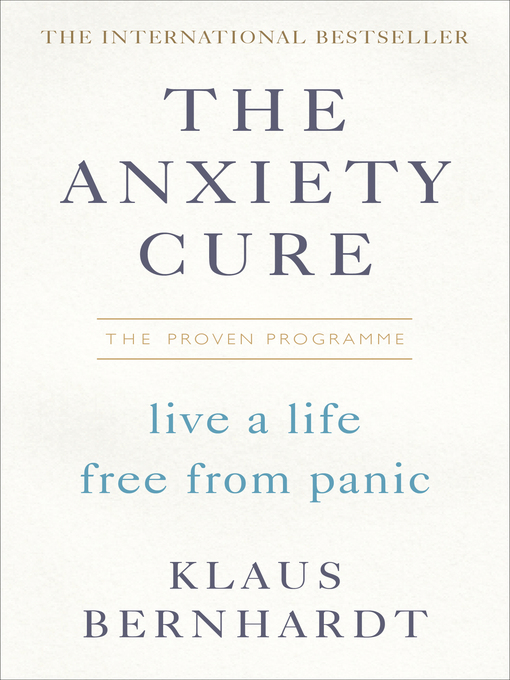 We enter the church, under the arches of which music sounds. In the side nave we find a secluded place where we can speak without raising our voices and hear each other.
We enter the church, under the arches of which music sounds. In the side nave we find a secluded place where we can speak without raising our voices and hear each other.
I know that Sanne has been diagnosed with Generalized Anxiety Disorder. The almost atonal sound of the organ is the perfect soundtrack to her story.
It all started at school. Sanna was too worried about the idea that her work would be judged. She was afraid that she would be exposed, but because of what exactly, she did not know. She just had the feeling that sometimes she was seen through. Speaking in front of a class was a pain. Long before the report, Sanne began to think that she would get dizzy and faint. And when she went to the blackboard, under the gaze of her classmates, her fears were confirmed. Fear of someone else's assessment did not leave Sanna even in adulthood, she had to give up both her studies and work. Over time, she found herself daydreaming more and more often.
“When my thoughts do not revolve around one thing, I dream, observe life, look for patterns. Sunday afternoons I just sit and dream. Then I come to my senses, look around and ... has it really been so long? Sanna finds it easy to wait in line: she just goes into her own world, and time flies by quickly. One bad thing: Sanne is unable to turn off his daydreaming.
Sunday afternoons I just sit and dream. Then I come to my senses, look around and ... has it really been so long? Sanna finds it easy to wait in line: she just goes into her own world, and time flies by quickly. One bad thing: Sanne is unable to turn off his daydreaming.
“I often think about what could have been done differently and how it actually turned out. I can dive into my fantasy world and almost forget what happened. What, am I dreaming now? Everything happens so slowly and I don't have to do anything. It doesn't matter. Here's what might come to my mind. Who am I outside my thoughts? Who am I when I'm not thinking? Do I exist when I don't think?
While talking, Sanne looks at the empty benches. She received her diagnosis while working at a shelter for people with severe autism. One of Sanne's adult sons felt depressed, Sanne suffered from anxiety, and "excessive anxiety" is the most common description of generalized anxiety disorder, and the psychologist considered "excessive anxiety" an appropriate diagnosis. But was Sanne's concern really excessive?
But was Sanne's concern really excessive?
Soon the son became so depressed that he began to take medications that he "prescribed" for himself. Sanne became an overprotective mother. She helped him contact a psychiatrist, she wanted to be with him always. Not just to know for sure that he's okay. They were good together, they liked to talk.
“When you have a baby, you imagine what will happen and how, and you think that you can control everything,” says Sanne. You think your love will protect him. I was deceived in many of my expectations. But if someone feels bad, then this is not from a lack of love. Anything, of course, happens, but many more things can intervene. ”
When Sanne's son disappeared, she reported it to the police the same evening. The son, apparently, himself decided to disappear, and the police said that they could not help. Sanna didn't know what to do.
"I know it's like looking for a needle in a haystack, but no one will stop me from dreaming, and in my dreams I often find my son. "
"
A menacingly disharmonic organ roar is heard in the far part of the church. Maybe the organist doesn't like us talking. Perhaps the cathedral is not the right place for such conversations. Sanne seems to barely notice the angry sounds.
“I didn't want to think about the worst, and when there was a knock on the door, I thought it was him, although at the same time it seemed to me that I already knew what had happened. In my waking dreams, I walk, walk through the hallway to the front door. I repeat the steps again and again, after which everything changed.
No one knows if the overdose was accidental or if Sanne's son wanted to die. Her friends talk about the accident.
The world faded, thoughts were confused, making it almost non-existent. Today, going to the store, Sanne sometimes stops and looks around, amazed that everything is the same as before.
“Does the outer world still exist? How? I'm living in a nightmare."
At first, the anxiety that Sanne had lived with for so long was almost gone. The worst had already happened, grief made her bolder. Then the thoughts returned. But instead of counterfeit ideas about the future, Sanne now reflects on what didn’t happen: what would happen if she behaved differently?
The worst had already happened, grief made her bolder. Then the thoughts returned. But instead of counterfeit ideas about the future, Sanne now reflects on what didn’t happen: what would happen if she behaved differently?
“Like something is forcing you. As if if I stopped thinking about him, I would betray him. Oddly enough, destructive thoughts provide a sense of security. You already know what's in front of you. Familiar territory.
The organ stops, and it seems to me that we are alone in the church. I mumble, "I see, you have something to think about." Sanne looks over the benches, and it begins to seem to me that she has long been tired of empty consolations.
“He exists not only in endless anxious thoughts,” says Sanne. “I have good memories, but they are marred by what happened. And I know my worries won't help me or anyone else."
Sanne's second son recently told her that he had decided to go abroad, to participate in protests as a human shield. Terrible thoughts approached Sanna like an enemy army.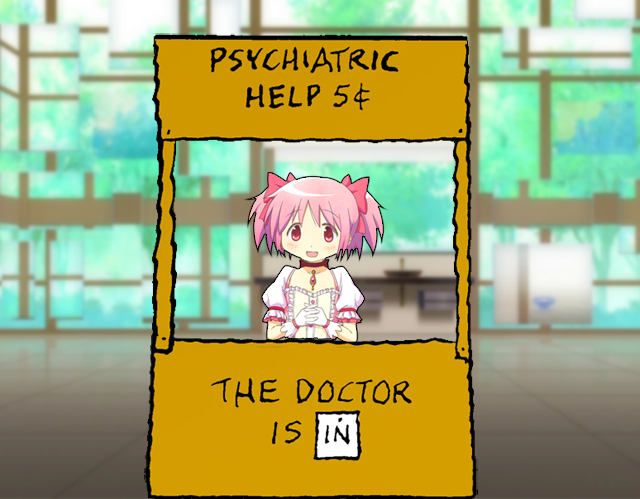 There was a howl in her head, she lost sleep. But Sanne refrained from trying to influence the choice of her son, and she saw him off. Because there was a risk that he, too, could die. There is always such a risk, says Sanne.
There was a howl in her head, she lost sleep. But Sanne refrained from trying to influence the choice of her son, and she saw him off. Because there was a risk that he, too, could die. There is always such a risk, says Sanne.
"It seems to me that this is the price of love."
Illness and situation
Sanne faced loss. At first they were insignificant, within the limits of normal life. A heavy loss followed: Sanne lost her child. Is it any wonder that Sanne suffered from anxiety? And if this is not surprising, then is it reasonable to diagnose her with "excessive anxiety"?
Sanne herself says that anxiety is definitely not good for her, she would like to be more in the moment so as not to drown in a whirlpool of thoughts. It was her preoccupation with thought that made her anxiety "excessive." But the agonizing thought that his son was in danger was not far-fetched. Sanne had every reason to be alarmed, and they were justified.
Perhaps it is more reasonable to "diagnose" specific situations rather than individual people ? With regard to severe anxiety disorders, this issue has been reviewed by psychiatrists several times.
In Sanne's case, the anxiety was not only in her head, it affected at least one other person—her depressed son. In addition, Sanne and her son were included in a certain social context. To analyze their situation, it is necessary to take into account the historical time in which they lived, the dominant model of the family, the norms of parental responsibility, the attitude of society towards people with drug addiction, the attitude of society towards people with mental disorders, the attitude towards the unemployed, not to mention the long way to awareness time, disenchantment, and risk analysis described in this book.
In this analysis of the situation, the term "generalized anxiety disorder" would describe a set of interacting factors that cause a person to experience extreme anxiety. Some psychiatrists argue that all diagnoses describe situations of this kind, that mental illness does not occur in a vacuum, and therefore we should abandon the very idea of "mental illness. "
"
Criticism of psychiatry is still largely reduced to the question of whether it is appropriate to speak of mental illness as a separate category. About this back at 19Thomas Szasz, an American psychiatrist of Hungarian origin, spoke up in the 1950s. I had a chance to talk to him a year before his death. 91-year-old Sas felt cheerful and managed to repeat his thesis five times: "There are no mental illnesses."
One of his arguments concerned the structure of the psyche. We know how a healthy heart, thyroid or small intestine should work. How the human psyche should work, we do not know. What is considered dysfunctional behavior is inseparable from the situation and society. If by functionality we mean only adaptation to a certain society, then the question arises whether social adaptation is generally a positive phenomenon.
Looking at the problem from this angle, Sas thinks we are doing people a disservice when we convince them that they are mentally ill. The very idea of being mentally ill can trigger manifestations of illness: we become depressed because we are depressed, we have obsessive thoughts about OCD, we worry about our anxiety disorder, and we panic about a possible panic attack. According to Sasz, psychiatry itself often creates problems that it must fight.
The very idea of being mentally ill can trigger manifestations of illness: we become depressed because we are depressed, we have obsessive thoughts about OCD, we worry about our anxiety disorder, and we panic about a possible panic attack. According to Sasz, psychiatry itself often creates problems that it must fight.
But Szasz, who criticized psychiatry, was himself an active psychotherapist. He did not like it when his name was associated with the so-called antipsychiatry, he did everything so that people would not be left alone with trouble. But with what? If mental illness as such does not exist, then what kind of help can a psychotherapist provide?
When I asked this question to Sas, he replied: "I help people solve their problems."
Concepts mental problems I tried to adhere to in this book. Mental illness and having problems are still different things. To believe that you are mentally ill and that all you have to do to get well is to fix some internal breakdown is as unreliable as trying not to think about polar bears. If at least one thought, at least one feeling associated with the disease enters the consciousness, then the person will return to the starting point - still “sick”. Spirals of anxiety due to anxiety and depression due to depression are reinforced by the disease model. Learning to break these spirals means learning not to think about mental illness.
If at least one thought, at least one feeling associated with the disease enters the consciousness, then the person will return to the starting point - still “sick”. Spirals of anxiety due to anxiety and depression due to depression are reinforced by the disease model. Learning to break these spirals means learning not to think about mental illness.
If we can get rid of this idea - and all its verbal manifestations like "disorder", "syndrome", "disease" and "neuroses" - the consequences will be radical. Without the very idea that there are mental illnesses, it becomes difficult to talk about treatment. You can't cure a person's problems. On the other hand, people have known for many centuries how to help those who are in trouble live a decent life. History knows several examples of such assistance.
In the Belgian city of Gel, for example, people whose state of mind does not meet generally accepted criteria have been so taken care of since the 13th century. It has long been established here to settle people with mental disorders in families who, even today, are not informed of the psychiatric diagnoses of “adopted children”. The idea is not to treat them as sick, but to let them live and move around the city like any other family member. This model has long attracted many people to Gel. In 1845, the French psychiatrist Jacques-Joseph Moreau wrote that Gels was one of the few places where people who would have been locked up somewhere else "have not completely lost their human dignity and reason."
The idea is not to treat them as sick, but to let them live and move around the city like any other family member. This model has long attracted many people to Gel. In 1845, the French psychiatrist Jacques-Joseph Moreau wrote that Gels was one of the few places where people who would have been locked up somewhere else "have not completely lost their human dignity and reason."
The history of psychiatry also knows more non-trivial attempts to help without treatment. In the 1960s, the Scottish psychiatrist Ronald Laing opened a therapeutic community in London's Kingsley Hall, where schizophrenic patients and doctors lived together. From the movies it is difficult to determine who is a schizophrenic and who is a psychiatrist. The idea was to eliminate the role of psychiatry and stop all forms of treatment, especially drug and electroshock therapy, and replace them with LSD.
In the same years an even more radical experiment took place in Germany; led by psychiatrist Wolfgang Huber. Huber founded the Socialist Collective of Patients, which existed for some time in the clinic at the University of Heidelberg. Huber's main idea was that people diagnosed with schizophrenia should rebel against capitalism, which was considered the cause of their suffering.
Huber founded the Socialist Collective of Patients, which existed for some time in the clinic at the University of Heidelberg. Huber's main idea was that people diagnosed with schizophrenia should rebel against capitalism, which was considered the cause of their suffering.
"Make sickness a weapon!" is the motto that gave its name to the Collective's book, to which Jean-Paul Sartre wrote the foreword. In the preface, Sartre argued that the idea of mental illness is inextricably linked to the capitalist system, which makes labor power a commodity.
However, exactly how to make disease a weapon remained unclear. The group grew and became more and more radical. She was expelled from the campus, and Huber was arrested just a year after the start of the experiment. Some patients began to cooperate with the Baader-Meinhof group and at 1975 participated in the capture of the German embassy in Stockholm. Siegfried Hausner, who detonated the bomb by mistake and died from his wounds, was one of the first members of the Socialist Collective of Patients.



